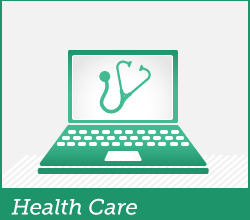In the past, learning about a good doctor or a pleasant hospital experience was a “word of mouth” phenomenon. Today, more and more patients are going online for information about potential healthcare providers and hospital systems. But exactly how accurate is the information they are accessing? Recently, multiple surveys and research investigations have been published about the validity of online physician review sites. Like most things that we find on the internet, the best advice is to take what you see there “with a grain of salt”.
In the past, learning about a good doctor or a pleasant hospital experience was a “word of mouth” phenomenon. Today, more and more patients are going online for information about potential healthcare providers and hospital systems. But exactly how accurate is the information they are accessing? Recently, multiple surveys and research investigations have been published about the validity of online physician review sites. Like most things that we find on the internet, the best advice is to take what you see there “with a grain of salt”.
A recent survey performed by the Pew Research Center asked participants a simple question. “What percentage of adult internet users have consulted or posted online health reviews?” The results are quite startling. The minority of users actually post–but a fair number of users read and consult these reviews.
Source: Pew Research Center “Health Online 2013”
So, as consumers of healthcare, how in the world do we interpret this data. The fact that only 3% of the folks surveyed actually posted reviews suggests that the reviews are somehow biased–either good or bad. This can certainly lead to misleading comments and ratings and can drastically change how a provider is perceived. We must remember that these MD ratings sites are unregulated and not very well controlled or policed. Typically, in any customer service industry, we find that most comments come from dissatisfied customers–it is rare in corporate America that someone takes the time to leave a positive comment. There have been many published studies in the literature have shown that negative events are much more likely to elicit comments.
An article published in the New York Times in March 2012, discusses the neuropsychiatric basis for this very fact. In the article, Stanford researcher Dr Clifford Nass states that the brain handles positive and negative events differently and in these events are even processed in separate locations within the cortex. His research has demonstrated that we tend to process negative experiences more thoroughly and tend to ruminate about negative more than positive–in other words it takes many many positive experiences to overcome one negative interaction. A recent study in the Journal of Urology evaluated the ratings of common sites such as Vitals.com, Healthgrades.com and RateMDs.com and found that from a random sample of 500 Urologists whose ratings were examined, the average number of evaluations for each was 2.4 ratings. Many of the reviews focused more on the office experience (decor, wait times, etc) rather than the interaction with the physician or the providers knowledge or ability. Obviously with very few respondents the results can be significantly skewed by either a remarkably high or a remarkably low rating. The results suggest that physician rating sites are probably not the most effective way to evaluate your next potential healthcare provider
What are some possible sources of bias in MD ratings? The internet allows for anonymity and promotes the ability to say things that we normally may not say in a face to face interaction. Disgruntled employees, angry family members or patients frustrated by their disease may provide unwarranted negative ratings to healthcare providers. Conversely, family members and friends may also provide unwarranted high praise. Altogether, these types of bias limit the utility of physician ratings sites. Other options for choosing a provider include social media sites such as twitter. There are disease specific tweet chats that promote interaction among patients. Patients in the chat often recommend certain therapies, physicians and hospital systems. These groups tend to be very well informed and the information is fairly reliable. Ultimately, as an article on theNPR website last week suggests–we may just have to go back to the prehistoric pre-digital era when it comes to rating and choosing physicians–we might just have to talk to one another!
The post Interpreting Physician Rating Websites: Garbage IN Equals Garbage OUT appeared first on The Doctor Weighs In.







